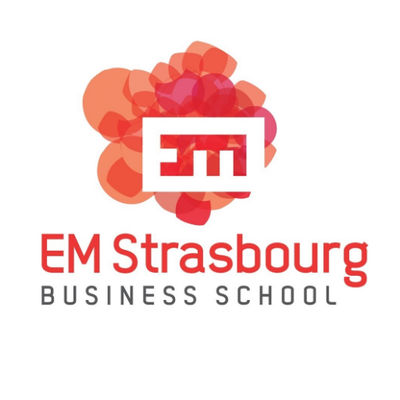预约演示
更新于:2025-12-09

Em Strasbourg Business School
更新于:2025-12-09
概览
关联
100 项与 Em Strasbourg Business School 相关的临床结果
登录后查看更多信息
0 项与 Em Strasbourg Business School 相关的专利(医药)
登录后查看更多信息
4
项与 Em Strasbourg Business School 相关的文献(医药)2021-12-01·BMC health services research3区 · 医学
Orthopedist involvement in the management of clinical activities: a case study
3区 · 医学
ArticleOA
作者: Laberge, Maude ; Côté, André ; Breton, Mylaine ; Gilbert, Marie-Hélène ; Abasse, Kassim Said ; Lemaire, Célia
Abstract:
Background:
The rapid shift in hospital governance in the past few years suggests greater orthopedist involvement in management roles, would have wide-reaching benefits for the efficiency and effectiveness of healthcare delivery. This paper analyzes the dynamics of orthopedist involvement in the management of clinical activities for three orthopedic care pathways, by examining orthopedists’ level of involvement, describing the implications of such involvement, and indicating the main responses of other healthcare workers to such orthopedist involvement.
Methods:
We selected four contrasting cases according to their level of governance in a Canadian university hospital center. We documented the institutional dynamics of orthopedist involvement in the management of clinical activities using semi-structured interviews until data saturation was reached at the 37th interview.
Results:
Our findings show four levels (Inactive, Reactive, Contributory and Active) of orthopedist involvement in clinical activities. With the underlying nature of orthopedic surgeries, there are: (i) some activities for which decisions cannot be programmed in advance, and (ii) others for which decisions can be programmed. The management of unforeseen events requires a higher level of orthopedist involvement than the management of events that can be programmed.
Conclusions:
Beyond simply identifying the underlying dynamics of orthopedists’ involvement in clinical activities, this study analyzed how such involvement impacts management activities and the quality-of-care results for patients.
PloS one3区 · 综合性期刊
Decision-Making under Risk of Loss in Children
3区 · 综合性期刊
ArticleOA
作者: Sophie Steelandt ; Valérie Dufour ; Amélie Romain ; Bernard Thierry ; Marie-Hélène Broihanne
In human adults, judgment errors are known to often lead to irrational decision-making in risky contexts. While these errors can affect the accuracy of profit evaluation, they may have once enhanced survival in dangerous contexts following a "better be safe than sorry" rule of thumb. Such a rule can be critical for children, and it could develop early on. Here, we investigated the rationality of choices and the possible occurrence of judgment errors in children aged 3 to 9 years when exposed to a risky trade. Children were allocated with a piece of cookie that they could either keep or risk in exchange of the content of one cup among 6, visible in front of them. In the cups, cookies could be of larger, equal or smaller sizes than the initial allocation. Chances of losing or winning were manipulated by presenting different combinations of cookie sizes in the cups (for example 3 large, 2 equal and 1 small cookie). We investigated the rationality of children's response using the theoretical models of Expected Utility Theory (EUT) and Cumulative Prospect Theory. Children aged 3 to 4 years old were unable to discriminate the profitability of exchanging in the different combinations. From 5 years, children were better at maximizing their benefit in each combination, their decisions were negatively induced by the probability of losing, and they exhibited a framing effect, a judgment error found in adults. Confronting data to the EUT indicated that children aged over 5 were risk-seekers but also revealed inconsistencies in their choices. According to a complementary model, the Cumulative Prospect Theory (CPT), they exhibited loss aversion, a pattern also found in adults. These findings confirm that adult-like judgment errors occur in children, which suggests that they possess a survival value.
PloS one3区 · 综合性期刊
Children Base Their Investment on Calculated Pay-Off
3区 · 综合性期刊
ArticleOA
作者: Sophie Steelandt ; Valérie Dufour ; Bernard Thierry ; Marie-Hélène Broihanne
To investigate the rise of economic abilities during development we studied children aged between 3 and 10 in an exchange situation requiring them to calculate their investment based on different offers. One experimenter gave back a reward twice the amount given by the children, and a second always gave back the same quantity regardless of the amount received. To maximize pay-offs children had to invest a maximal amount with the first, and a minimal amount with the second. About one third of the 5-year-olds and most 7- and 10-year-olds were able to adjust their investment according to the partner, while all 3-year-olds failed. Such performances should be related to the rise of cognitive and social skills after 4 years.
100 项与 Em Strasbourg Business School 相关的药物交易
登录后查看更多信息
100 项与 Em Strasbourg Business School 相关的转化医学
登录后查看更多信息
组织架构
使用我们的机构树数据加速您的研究。
登录
或

管线布局
2026年02月08日管线快照
无数据报导
登录后保持更新
药物交易
使用我们的药物交易数据加速您的研究。
登录
或

转化医学
使用我们的转化医学数据加速您的研究。
登录
或

营收
使用 Synapse 探索超过 36 万个组织的财务状况。
登录
或

科研基金(NIH)
访问超过 200 万项资助和基金信息,以提升您的研究之旅。
登录
或

投资
深入了解从初创企业到成熟企业的最新公司投资动态。
登录
或

融资
发掘融资趋势以验证和推进您的投资机会。
登录
或

生物医药百科问答
全新生物医药AI Agent 覆盖科研全链路,让突破性发现快人一步
立即开始免费试用!
智慧芽新药情报库是智慧芽专为生命科学人士构建的基于AI的创新药情报平台,助您全方位提升您的研发与决策效率。
立即开始数据试用!
智慧芽新药库数据也通过智慧芽数据服务平台,以API或者数据包形式对外开放,助您更加充分利用智慧芽新药情报信息。
生物序列数据库
生物药研发创新
免费使用
化学结构数据库
小分子化药研发创新
免费使用